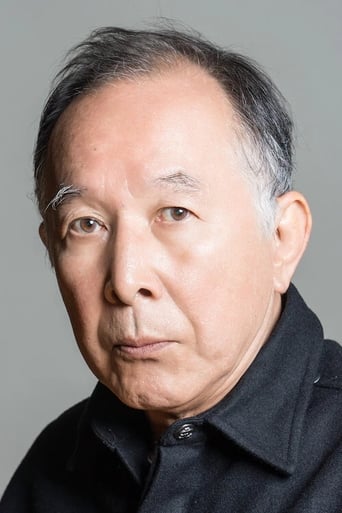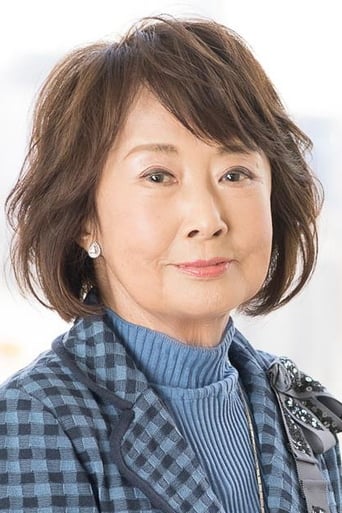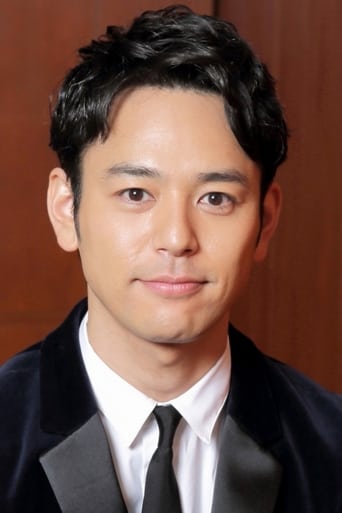Incannerax
What a waste of my time!!!
AnhartLinkin
This story has more twists and turns than a second-rate soap opera.
Sammy-Jo Cervantes
There are moments that feel comical, some horrific, and some downright inspiring but the tonal shifts hardly matter as the end results come to a film that's perfect for this time.
Adeel Hail
Unshakable, witty and deeply felt, the film will be paying emotional dividends for a long, long time.
user-15-840154
This is a very touching movie, but after saw a film critic, I found that for Westerners, the film may not have that deep feeling. So as an Asians, I would like to say this film is quite moving for Asians.Perhaps the emotional expression of Eastern and Western cultures are quite different. Asians express their emotions in a more delicate way. Therefore, in the film, the delicate movements and expressions are very emotional expression to the Asians audience. ''In addition, filial piety, and the gap between urban and rural life, as well as homesickness, are very important issue for the Asians.The most touching of this film is the love of parents to their children, although there is no direct face to face expression, but through the mother and father's behavior, they show indeed deep love.So I would like to say to Western audiences that this is a very good movie that expresses the emotions of Asians. If you can really appreciate the moving part of this film, you can understand the Asians's emotion world.Not to mention, the soundtrack of Hisaishi is really great!
d-JCB
9/10watched an amazing film this morning… just when i was trying to get to sleep after another "up till sunrise" night… it's called Tokyo Family by Yôji Yamada, a tribute to legendary Japanese director Yasujirô Ozu and his most famous film, Tokyo Story from 1953… it's quite similar in idea, where older parents from a country sea side town come to Tokyo to visit their kids / grand kids, but no one really has time for them… Tokyo has this high paced way of living, while in the country the old folks just kick back and enjoy life go by… the relationship between the father and son reminded me of my situation with dad who recently passed away - my personality & outlook in life is like mine while the fathers is like my dad… also there's a death in the film where the whole family has to go thru, very sudden like dad's circumstances… it destroyed me, but in a good way cause it allowed be to grieve a bit more, cause I've been resisting it a bit since dad's funeral… it really is a heart breaking film, and like death it is hard for all family members to endure… in the film the funeral & wake were very beautiful, respectful… all the family got together like we all did… it finishes on a positive note that life must go on, the father becomes more accepting of the son & vice versa… thru this death in the family they break their stand off between each other and bond in their own unique way…instant 9/10 & keen to watch it again… u should too, to see the contrasts between generations, traditions & cities… old times compared to modern times… something that will be timeless, just like Yamada modernising the Ozu 50s masterpiece with another masterpiece that will be also treasured for generations to come
geer-9
I was anticipating a respectful homage to Ozu's Tokyo Story. What I got was respectful but a very different take on Ozu's classic. Watching the first half was a little worrying as the movie took its time establishing the characters and setting the scene, with the obligatory nods to Ozu's super low camera angles. Had Yoji Yamada lost his way while eulogizing his hero? But this start made the second half really shine as you really knew the characters, and became involved in their actions since we understood their faults, and wondered if, or when, they were ever going to develop and change. Fans of Yamada will again delight in his subtle depictions of contemporary Japan. He has long championed the innate goodness of ordinary people living in suburbs and villages away from the tourist-trampled extremes of Shinjuku, Ginza or Gion. Although his characters are imperfect, they exemplify Yamada's profound respect for the institutions of family and friendship. Additionally, Im not sure if this was a deliberate subplot or not but, students of Japanese gender-based communication style differences will find a minefield of scenes to use for generating discussion. Highly recommended for those who also believe in Yamada's values.
moviexclusive
Cinephiles will tell you about the greatness of Tokyo Story, a 1953 Japanese film directed by Yasujiro Ozu. The story about an aging couple who travel to Tokyo to visit their grown children, only to have them being too busy to pay them much attention, is regarded as one of the most poignant tales ever told on screen. And as with every remarkable piece of work, there is a need to introduce it to a wider audience, hence the contemporary filmmakers' decision to produce Tokyo Family, an interpretation which you can either define as a remake, a tribute or an update.Yoji Yamada (The Twilight Samurai, The Hidden Blade) takes on this story and gives it a relatable angle to today's viewers. The plot is identical to the classic: An old couple from an isolated part of Japan takes the train to Tokyo to spend time with their grown children, not expecting them to be too occupied and indifferent to host them. A tragic death reunites the family in a quiet country town and has them coming to terms with how they have drifted apart because of selfishness.Made 60 years after the premiere of Tokyo Story and celebrating the 50th anniversary of the respected Ozu's death, this 146 minute film serves as a kind reminder of the importance of family ties. This is especially current in today's society, considering how new media and social expectations have changed how family members interact with each other. With that said, Yamada's latest work does not seem to offer anything refreshing. That is nothing surprising though, considering how Yamada was an assistant director of the earlier film. The 1954 graduate of Tokyo University painstakingly attempts to replicate the style of the original, from its slow pacing to how important events are revealed in dialogue instead of being shown on screen. Those who have watched the original (a large group would probably be film students) may find this version uninspiring, and the younger ones may find their patience being tested with the unhurried storytelling. However, do not let this make you feel that this is an unimportant piece of work. There are still pertinent themes which we as children ought to understand in this evergreen tale. There are times you know how things should work, but nothing works better than a screen visualisation to remind you of how things should be. There is strong acting from the cast here – Isao Hashizume and Kazuko Yoshiyuki shine in their roles as the unassuming parents who travel to bustling Tokyo from their quiet home on a small island, Masahiko Nishimura's unassuming screen presence gets to you as he plays a GP who runs a clinic from his home, Tomoko Nakajima flaunts her chops as a busy beauty parlour manager, while the charismatic Satoshi Tsumabuki takes on the role of the youngest son who is a freelance stagehand. Each member of the ensemble cast plays his or her character without outshining each other, and gives ample room for performance in the film's many key scenes. While Tokyo Family may not go down film history as a classic, it is still a commendable piece of work worth your time – if you are willing to sit down and appreciate life's slower moments.





